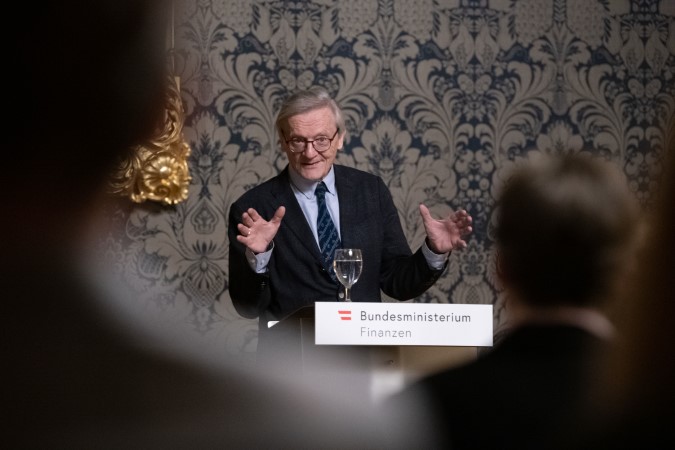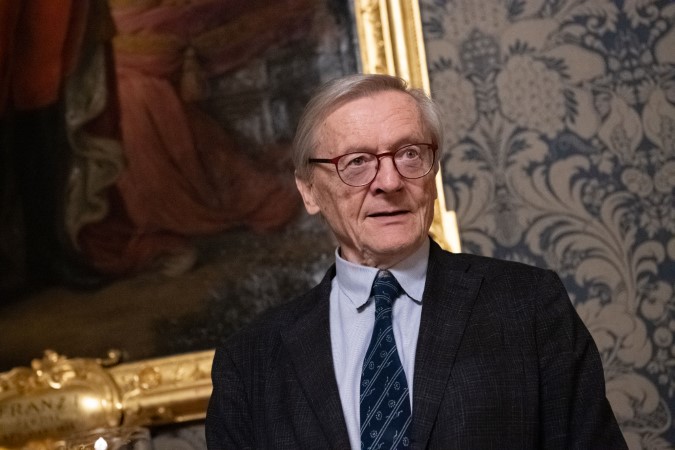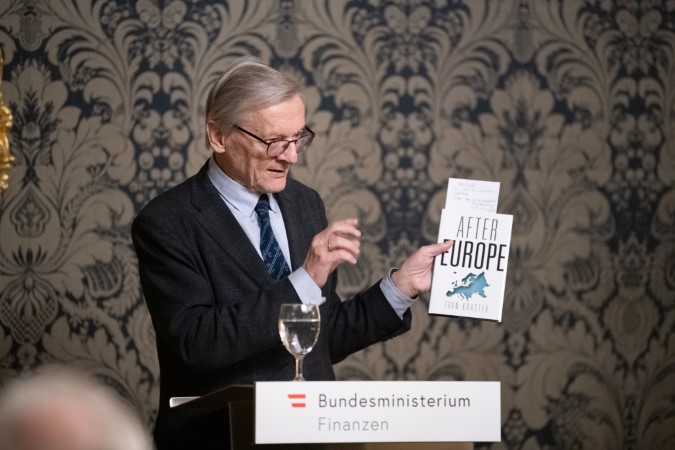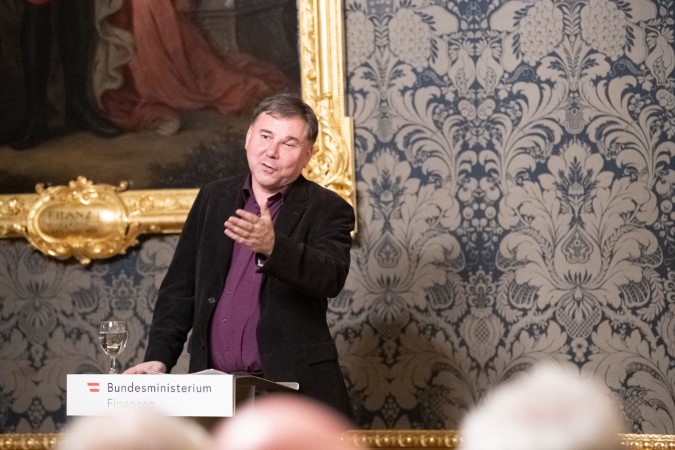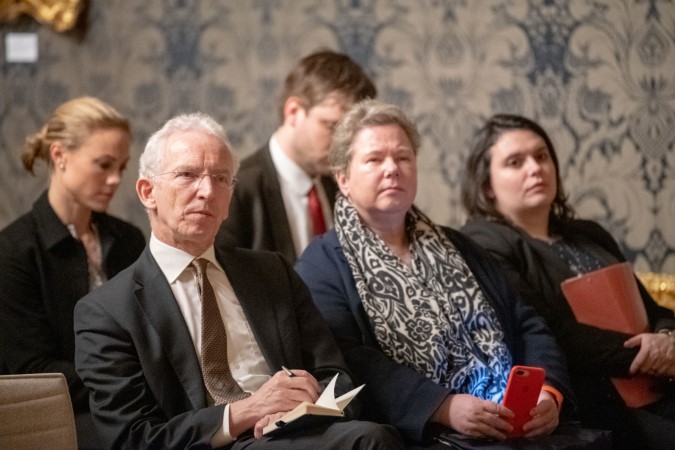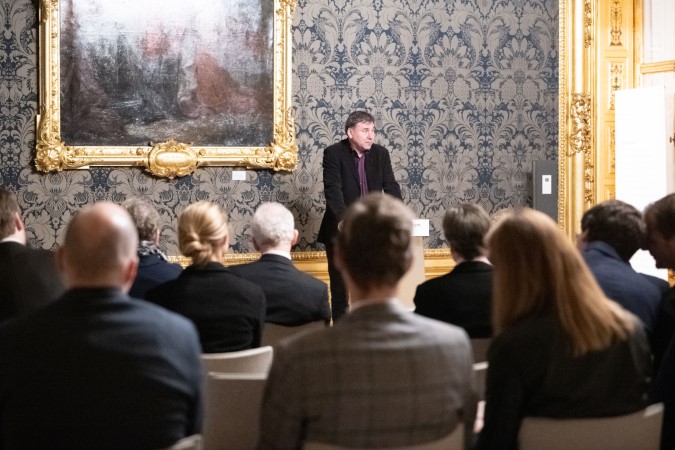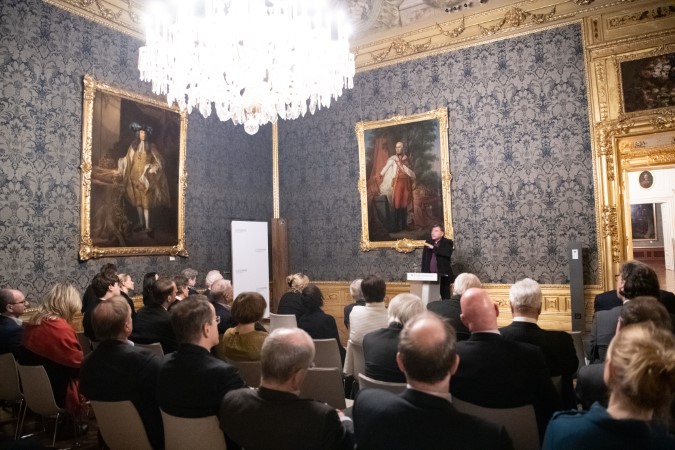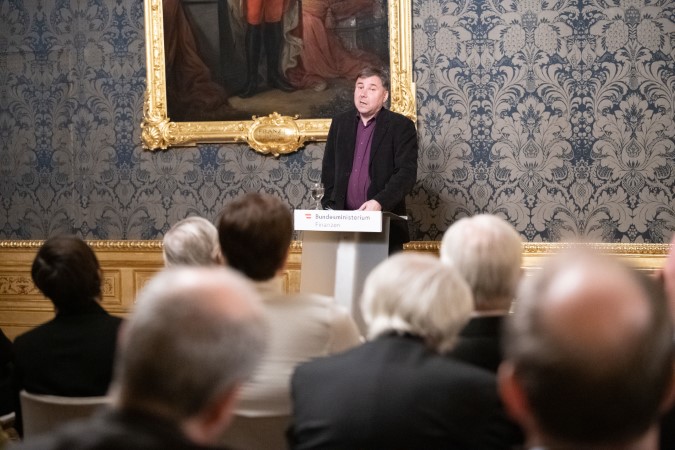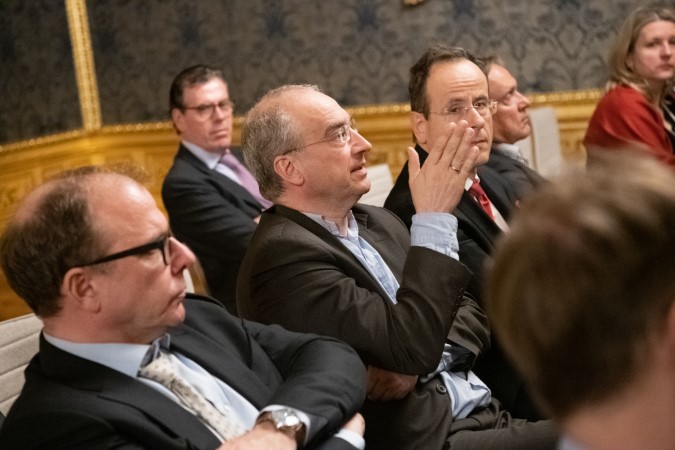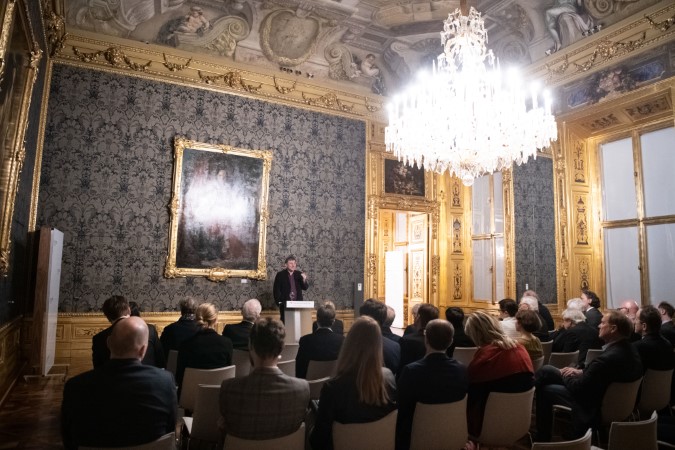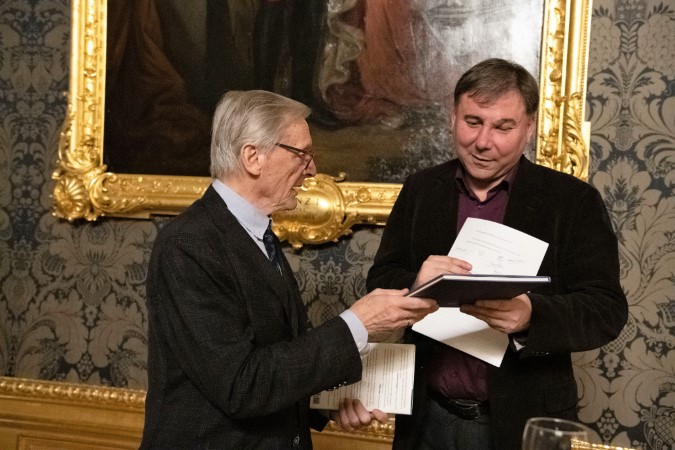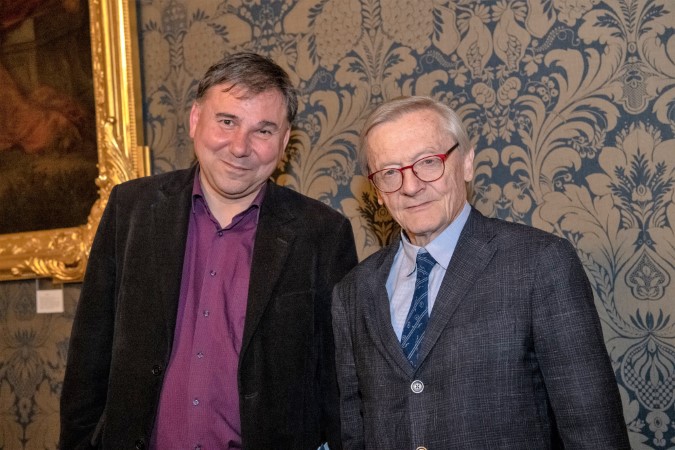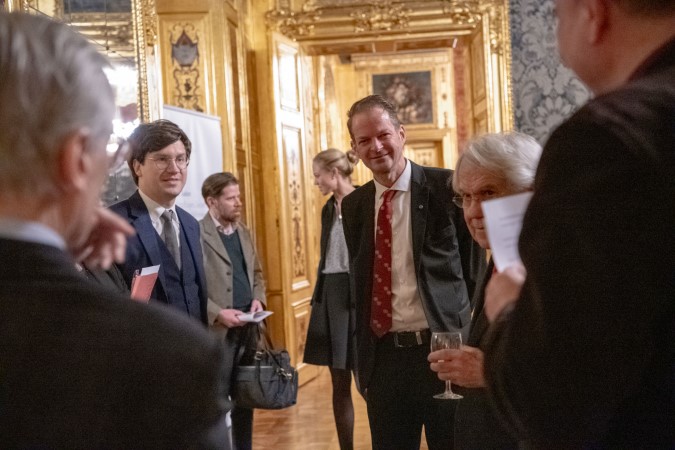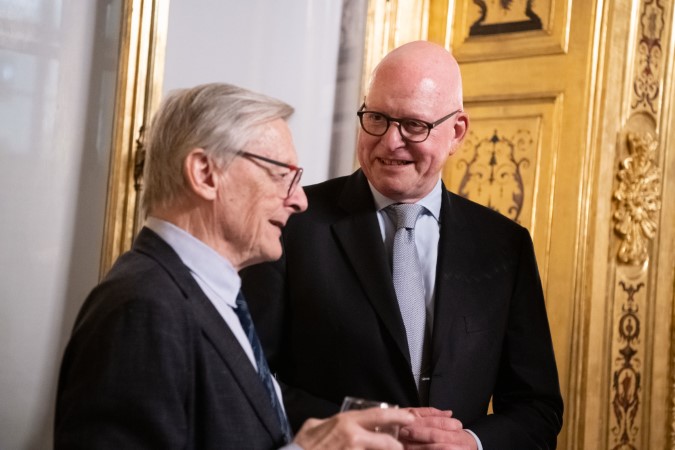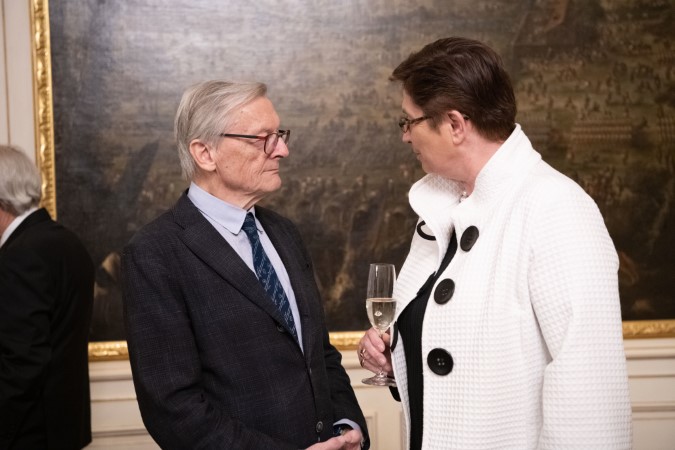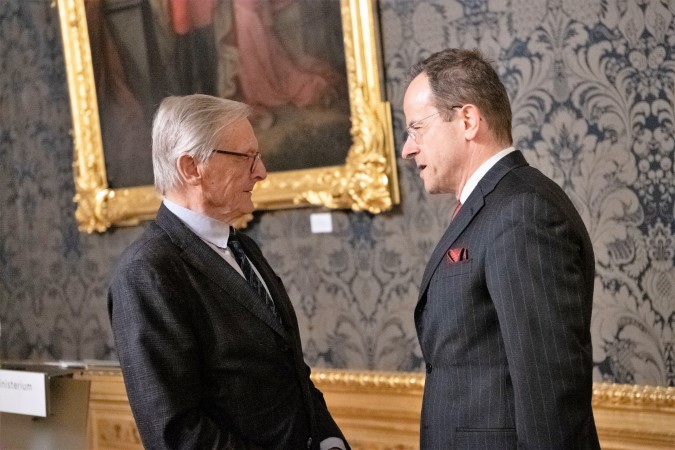On Wednesday, 27 March, 2019, we had the honour to welcome the prominent Bulgarian intellectual and political scientist Ivan Krastev to a lecture in the Winter Palais of Prince Eugen in Vienna. The welcome speech was given by United Europe’s President, former Austrian Chancellor Wolfgang Schüssel.
The lecture was entiteld “A tale for two Europes. The age of imitation and its discontents“.
In his lecture Krastev analysed the causes for the new division between Eastern and Western Europe and why the trend towards backward-looking nationalism and EU scepticism is particularly high in the young member states. Krastev explained the turn towards illiberal democracies in Eastern Europe countries like Poland and Hungary as a “Central European paradox”.
According to Krastev the biggest problem is that Europe has become a victim of its own success. Peace is taken for granted, there is no external threat, we take the world without war as given, and the power of unification is irrelevant for the younger generation today. Memories of war and dictatorship are no longer the pillars for today’s peace and democracy. “The younger generation have its own wars”, Krastev said.
One of the main causes of the democratic crisis on the EU and the crisis between East and West is that Eastern Europe is imitating the West – what mainly means Germany. This is very difficult in terms of Germany’s special history.
East Europeans often believe that Germany is made for them. It’s the country where most of them are emigrating. And: East-Europe is not afraid that Germany will lead. Its afraid that it will NOT.
But today – mainly after the immigration crisis starts in 2015 – East European countries want to keep sovereignty and do no longer want to imitate western values. On the other hand more and more young potentials leave their country of origin to work in more prosperous member states. 69.000 people left Hungary in the last 10 years, in Romania they are even 62 percent. If this continues, the business model is not going to survive: public health can no longer be guaranteed and the languages in small member states disappear. Today the most difficult thing in Eastern Europe is not to find an honest politician but to find a nurse. That’s why in Eastern Europe people fear more the people who are leaving their country than the ones who are coming. The Czech Republic with only 4 percent of emigrants is a big exception.
That leads to the question how to make European mobility not a one-way street. And how to create a common understanding between both parts of Europe.
In Poland 74 percent of the population believe that the European Union works. So it seems that the political problem with nationalism and populism is not a problem of the inhabitants but of the government. A European army and military budgets are widely discussed at the moment. But Europe’s problem is not the military budget. It’s about a culture of change which is very difficult to gauge.
Even in a country like Poland only 15 percent of the population declare Russia as a major security threat. Interestingly enough because of the trade tensions the United States is perceived as a major threat. But it’s not simply that different countries have a different threat perception.
Krastev, who has spent three months in Washington last year, said that Trump is a demonstration of a major change in America’s policy. This change will not disappear after Trump’s presidency. In a certain way America is starting to reconsider its role in the world. The usual political style disappears and with it the view that the United States perceives itself as the guarantor of the world order. Nowadays the US are going to be more focused on its national interest than before.
This is why Europe has to push to get something back on a strategic depth, not because of global conditions but because of the changing world.
We are seeing a cultural and political shift which do resemble in its dynamics the movements and demonstrations that happened in the 1970s, Krastev emphasized. 1970 the pressure of systems came from the left, today they come from the right. Also, Trump’s national economic interests can be compared to Anti-EU-parties. The difference to 1970 is, that the level of political violence in movements like Red Army Faction were much higher than we have now from the right-wing parties. From this point of view for Krastev the biggest problem is if today’s centre right parties can succeed by doing the same with some of the pressure which have done their predecessors from the left in the 1970s.
East Europeans often complain that the view from West to East is missing. They are feeling not being a serious part of the EU and not valued enough. Western Europe should pay more attention and respect to the Eastern European and Baltic countries. They do not appear sufficient in Germany’s consciousness, and that offends them.
Conclusion: Imitation is a very competitive relationship which does not longer work. We have to change our perspectives and need to accept that people and cultures in the East are different and diverse and should approach more each other. In times of dissolution of so many old partnerships this is more important than ever.
Photos: Georg Wilke



